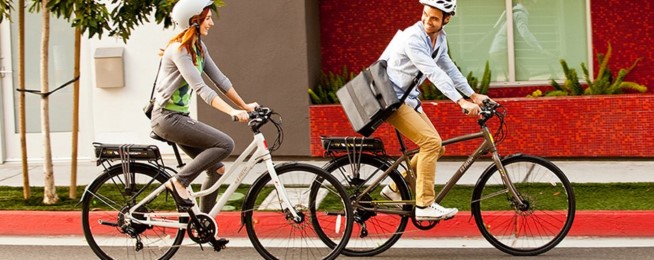At the Manchester Free Trades Hall in May 1966, a disgruntled Bob Dylan fan yelled out 'Judas', angry at Dylan's move from acoustic to electric guitar.
The cycling world is currently going through its own Dylan moment as electric bike use grows and many rusted on road riders claim that 'ebikes are cheating'.
People believe that if your pedalling is assisted, then it doesn't count. However, new research shows that it does.
The study conducted by the University of Zurich followed the activity of over 10,000 people (via online self-reporting) who rode electric bikes, conventional bikes, or no bikes at all.
It found that those who rode e-bikes get comparable levels of physical activity to people who ride only conventional bikes, and substantially more than people who do not ride a bike at all.
E-bike riders also rode conventional bikes, and on average got 1,288 Metabolic Equivalent Task (MET) minutes per week from bike riding. Those who rode only conventional bikes averaged 1,030 MET minutes per week.
MET is a measure of energy expenditure. It's said that when you're resting, your energy expenditure is 1 MET. If exercising at 5 METs, you are using five times as much energy as you would if you were doing nothing.
The World Health Organisation recommends at least 600 MET minutes per week to maintain health, about the equivalent of 30 minutes of moderate intensity physical activity.
University of Zurich's study shows that people who use e-bikes do indeed get physical activity, and enough of it to be healthy.
While it's true that riding an e-bike for the same amount of time as a conventional bike will not deliver the same METs, e-bikes should not be written off as not being healthy and are certainly not cheating.
What's more, those who rode e-bikes reported longer average trips (9.4km) than conventional bike riders (4.8km) and were used by people of a higher age and with easier access to a car.
E-bikes are enabling more people to get into riding and get physical activity.
In the conclusion, the study's author's noted not only that e-bikes should be promoted as a healthy and sustainable transport option, but also that we need to build better places to ride.
"To accommodate (or promote) this new demand and to avoid conflicts with other road users in urban areas, cycling infrastructure should be expanded and may need to be adapted to accommodate higher speeds and address safety needs," the paper says.
Electric bikes might not be for all the traditionalists, but the times they are a changin, and more people riding bikes is better for us all.
Feature image courtesy of inc.com
Become our friend
Find out more about Bicycle Network and support us in making it easier for people to ride bikes.


